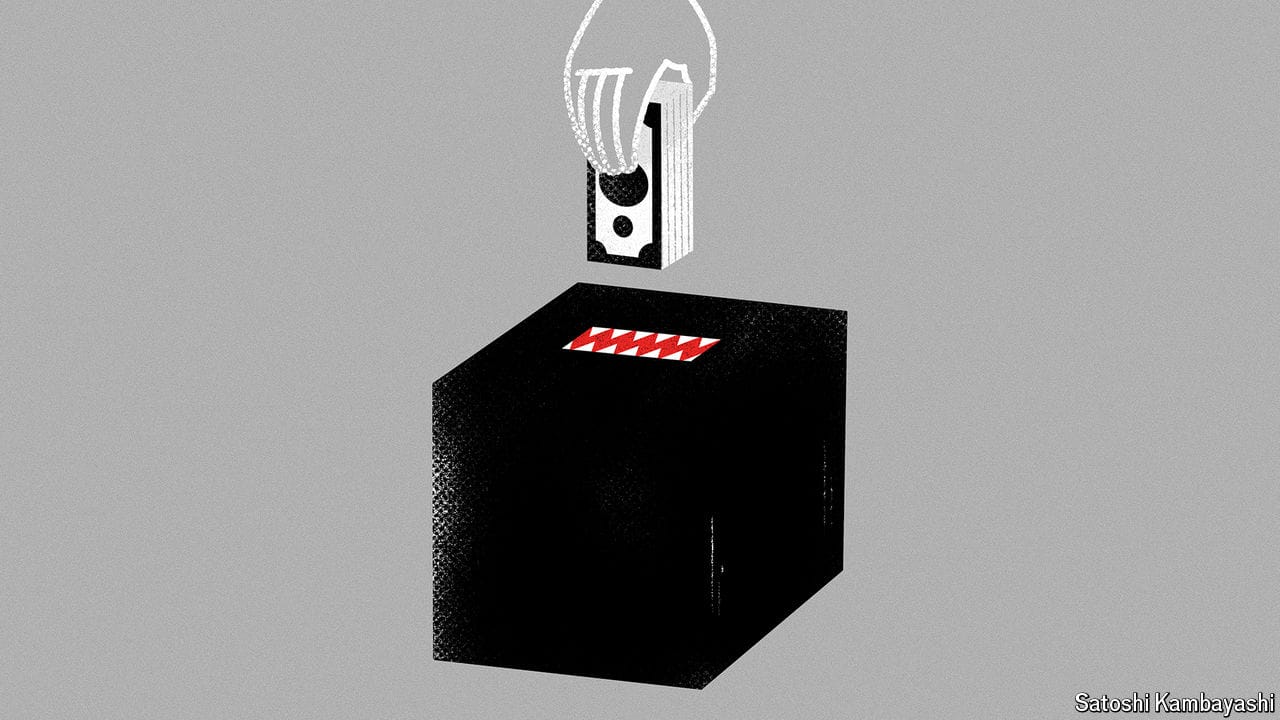The onset of a downturn is as much a matter of mood as of money
How recessions start

IN RECENT WEEKS the human and silicon brains at Google have registered an alarming rise in searches related to “recession”. It is easily explained. As markets gyrate, talk in the press (including this very column) turns to the risk of a slump. Even so, the stories must leave some Googlers baffled. In July, after all, the American economy added 164,000 jobs and retail sales kept climbing. President Donald Trump, too, is bemused. He has taken to warning darkly that conspirators are attacking his presidency by frightening the economy into an unnecessary downturn. The claim of conspiracy is absurd, but the threat of recession is not. Recessions can indeed appear as if out of the blue.
Today’s confusion owes something to the world’s odd recent economic history. The last global slump occurred amid an epic financial crisis. The one before that began nearly two decades ago, accompanied, again, by a stockmarket crash. (Between August 2000 and September 2001 the S&P 500 index fell by more than 30% and the NASDAQ by more than 60%. Now, by contrast, those indices are pretty much where they were a year ago.) Most people working today cannot remember a recession not linked to financial chaos. But downturns can occur without market meltdowns. Indeed, many economists think recessions need not occur at all.
This article appeared in the Finance & economics section of the print edition under the headline “A crisis of faith”
Finance & economics August 24th 2019
- Tidjane Thiam’s overhaul of Credit Suisse is paying off
- France is giving unilateralism a go
- China’s interest-rate revamp highlights the slow march of reform
- The Japanification of bond markets
- Apple and Goldman Sachs launch their credit card
- Who wins from foreign investment?
- The onset of a downturn is as much a matter of mood as of money
More from Finance and economics

China’s last boomtowns show rapid growth is still possible
All it takes is for the state to work with the market

What the war on tourism gets wrong
Visitors are a boon, if managed wisely

Why investors are unwise to bet on elections
Turning a profit from political news is a lot harder than it looks
Revisiting the work of Donald Harris, father of Kamala
The combative Marxist economist focused on questions related to growth
Donald Trump wants a weaker dollar. What are his options?
All come with their own drawbacks
Why is Xi Jinping building secret commodity stockpiles?
Vast new holdings of grain, natural gas and oil suggest trouble ahead
